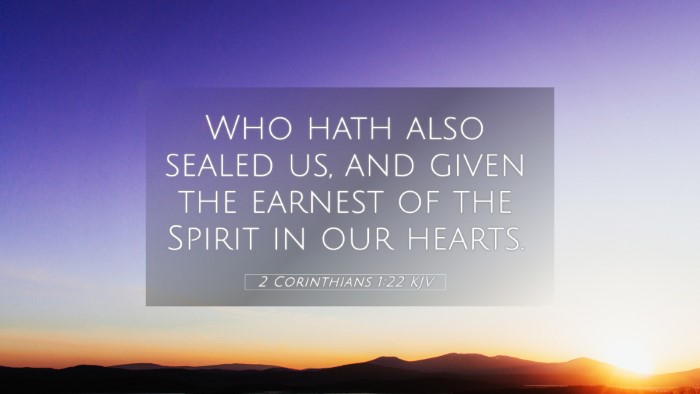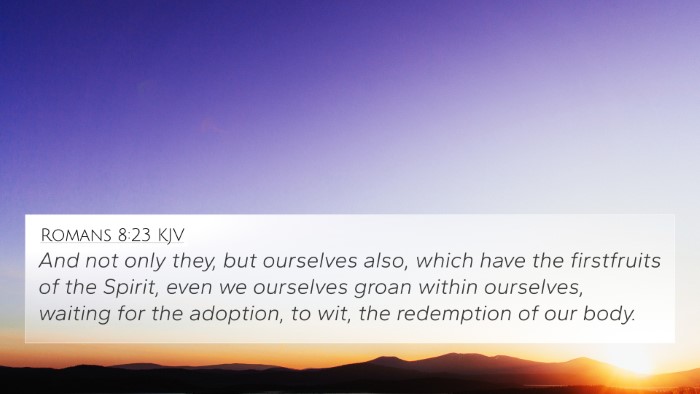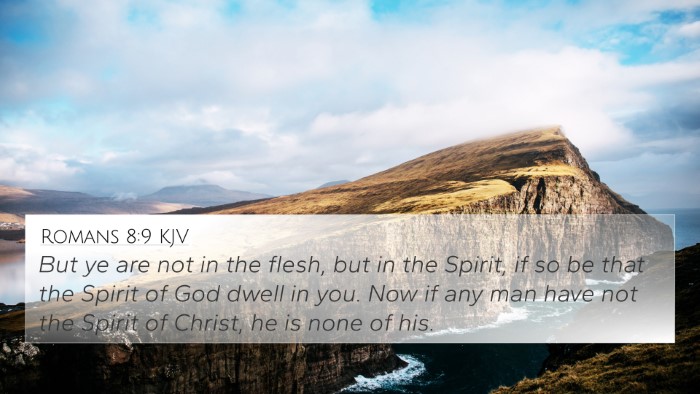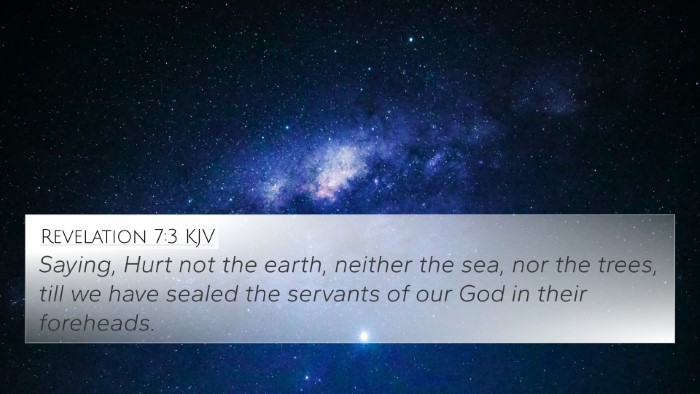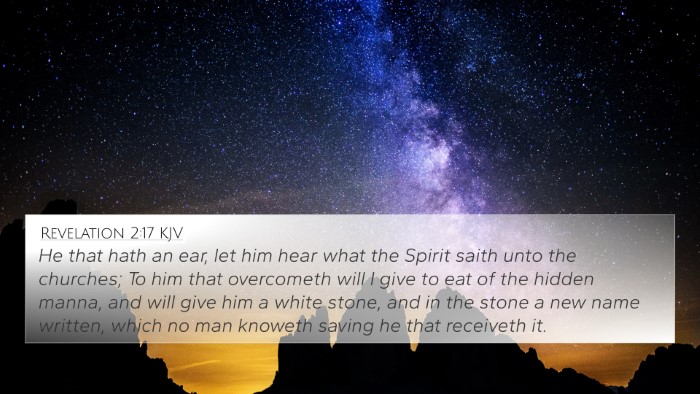Understanding 2 Corinthians 1:22
2 Corinthians 1:22 (KJV): "Who hath also sealed us, and given the earnest of the Spirit in our hearts."
This verse is a profound statement about God's confirmation of His covenant with believers. To unpack its meaning, we can refer to various public domain commentaries that offer insights into its theological implications.
Commentary Insights
Matthew Henry: Henry emphasizes the notion of being "sealed" by God, noting that this seal signifies ownership and protection. It is a divine mark that God places on His people, indicating that they belong to Him. Moreover, the "earnest of the Spirit" is described as a pledge of the future glory that awaits believers, which serves as an assurance of faith and a guarantee of eternal life.
Albert Barnes: Barnes expands upon the idea of the earnest provided to believers. He states that the Holy Spirit acts as a down payment for the blessings that will come in full measure in the life to come. This earnest gives confidence, instilling hope in believers about their eventual inheritance in the Kingdom of God. The sealing and earnest signify both security and assurance.
Adam Clarke: Clarke notes the importance of the Holy Spirit's role in the life of a Christian. He views the sealing as a transformative experience, marking the believer's sanctification and imparting a new nature that is aligned with God’s purposes. This sealing serves as a distinguishing factor between believers and the world, highlighting the importance of personal commitment to God's calling.
Bible Cross-References
To deepen the understanding of this verse, we can identify several related passages that echo similar themes:
- Ephesians 1:13-14: "In whom ye also trusted, after that ye heard the word of truth, the gospel of your salvation: in whom also after that ye believed, ye were sealed with that holy Spirit of promise, which is the earnest of our inheritance..."
- Romans 8:16: "The Spirit itself beareth witness with our spirit, that we are the children of God."
- 2 Timothy 2:19: "Nevertheless the foundation of God standeth sure, having this seal, The Lord knoweth them that are his..."
- John 14:17: "Even the Spirit of truth; whom the world cannot receive, because it seeth him not, neither knoweth him: but ye know him; for he dwelleth with you, and shall be in you."
- 1 Corinthians 6:19: "What? know ye not that your body is the temple of the Holy Ghost which is in you, which ye have of God, and ye are not your own?"
- Galatians 4:6: "And because ye are sons, God hath sent forth the Spirit of his Son into your hearts, crying, Abba, Father."
- Ephesians 4:30: "And grieve not the holy Spirit of God, whereby ye are sealed unto the day of redemption."
Connections Between Bible Verses
The verse from 2 Corinthians illustrates a critical aspect of the believer’s identity in Christ and the transformative power of the Holy Spirit. When conducting a comparative Bible verse analysis, it's clear that these themes of sealing and the Spirit are woven throughout various New Testament texts:
- Both Ephesians 1:13-14 and 2 Corinthians 1:22 highlight the sealing of the Holy Spirit as a promise of future inheritance.
- John 14:17 reinforces the theme of the Holy Spirit dwelling within believers, similar to the implications found in 2 Corinthians.
- In Romans 8:16, the assurance of being children of God through the Spirit connects with the sealing mentioned in 2 Corinthians.
Thematic Bible Verse Connections
Overall, 2 Corinthians 1:22 encapsulates critical themes found across scripture, emphasizing God's enduring promises and the work of the Holy Spirit in the believer's life. As one engages with Bible cross-reference guides, these themes become clearer, encouraging a deeper exploration of the biblical narrative.
Conclusion
The significance of 2 Corinthians 1:22 lies not only in the individual understanding of the verse but also in its interconnectedness with other scriptures. This verse serves as a reminder of the believer's identity and assurance in Christ, calling for continual reflection on biblical themes of ownership, protection, and the transformative power of the Holy Spirit. By utilizing tools for Bible cross-referencing, believers can explore these connections further, enriching their study and understanding of God's Word.

